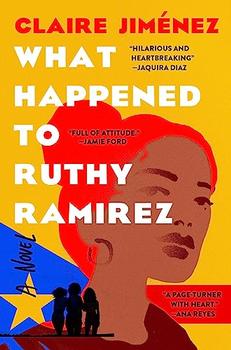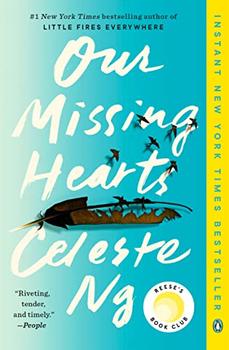Summary | Excerpt | Reading Guide | Reviews | Beyond the book | Read-Alikes | Genres & Themes | Author Bio

For readers of Valeria Luiselli and Edwidge Danticat, an urgent and lyrical novel about a Colombian family fractured by deportation, offering an intimate perspective on an experience that so many have endured - and are enduring right now.
Talia is being held at a correctional facility for adolescent girls in the forested mountains of Colombia after committing an impulsive act of violence that may or may not have been warranted. She urgently needs to get out and get back home to Bogotá, where her father and a plane ticket to the United States are waiting for her. If she misses her flight, she might also miss her chance to finally be reunited with her family in the north.
How this family came to occupy two different countries, two different worlds, comes into focus like twists of a kaleidoscope. We see Talia's parents, Mauro and Elena, fall in love in a market stall as teenagers against a backdrop of civil war and social unrest. We see them leave Bogotá with their firstborn, Karina, in pursuit of safety and opportunity in the United States on a temporary visa, and we see the births of two more children, Nando and Talia, on American soil. We witness the decisions and indecisions that lead to Mauro's deportation and the family's splintering—the costs they've all been living with ever since.
Award-winning, internationally acclaimed author Patricia Engel, herself a dual citizen and the daughter of Colombian immigrants, gives voice to all five family members as they navigate the particulars of their respective circumstances. And all the while, the metronome ticks: Will Talia make it to Bogotá in time? And if she does, can she bring herself to trade the solid facts of her father and life in Colombia for the distant vision of her mother and siblings in America?
Rich with Bogotá urban life, steeped in Andean myth, and tense with the daily reality of the undocumented in America, Infinite Country is the story of two countries and one mixed-status family—for whom every triumph is stitched with regret, and every dream pursued bears the weight of a dream deferred.
By engaging elements of indigenous myth, the author makes a case for the notion that human civilization is much wider and deeper than current political borders describe. The narrative jumps around in time to explore backstory, including the romantic courtship of Talia's parents. This story may sound familiar because thousands—actually, millions—of people are affected by the pressures driving global migration, which often lead to some form of separation. This novel, focused on parents unable to cross the border legally and siblings coming of age in mixed-status families, is an important addition to immigration literature...continued
Full Review
(687 words)
This review is available to non-members for a limited time. For full access,
become a member today.
(Reviewed by Karen Lewis).
 In Patricia Engel's novel Infinite Country, several of the main characters draw inspiration from their Muisca ancestors and legends. The Muisca, also known as the Chibcha, are an indigenous civilization that thrived in present-day Colombia before Europeans colonized the area. Bogotá, Colombia's capital city, is situated on an ancient Muisca settlement known as Bacatá in the Chibcha language.
In Patricia Engel's novel Infinite Country, several of the main characters draw inspiration from their Muisca ancestors and legends. The Muisca, also known as the Chibcha, are an indigenous civilization that thrived in present-day Colombia before Europeans colonized the area. Bogotá, Colombia's capital city, is situated on an ancient Muisca settlement known as Bacatá in the Chibcha language.
Traces of human existence dating back more than 12,500 years have been found in caves on the Bogotá savanna, including flint and bone tools, remains of animals such as the mastodon and petroglyphs carved into stone walls. But scholars generally agree that the group known as the Muisca migrated into the area much later, with signs ...
This "beyond the book" feature is available to non-members for a limited time. Join today for full access.

If you liked Infinite Country, try these:

What Happened to Ruthy Ramirez
by Claire Jimenez
Published 2024
A powerful debut novel that's "hilarious, heartbreaking, and a**-kicking" (Jamie Ford), of a Puerto Rican family in Staten Island who discovers their long‑missing sister is potentially alive and cast on a reality TV show, and they set out to bring her home.

by Celeste Ng
Published 2023
From the #1 bestselling author of Little Fires Everywhere, comes one of the most highly anticipated books of the year – the inspiring new novel about a mother's unbreakable love in a world consumed by fear.